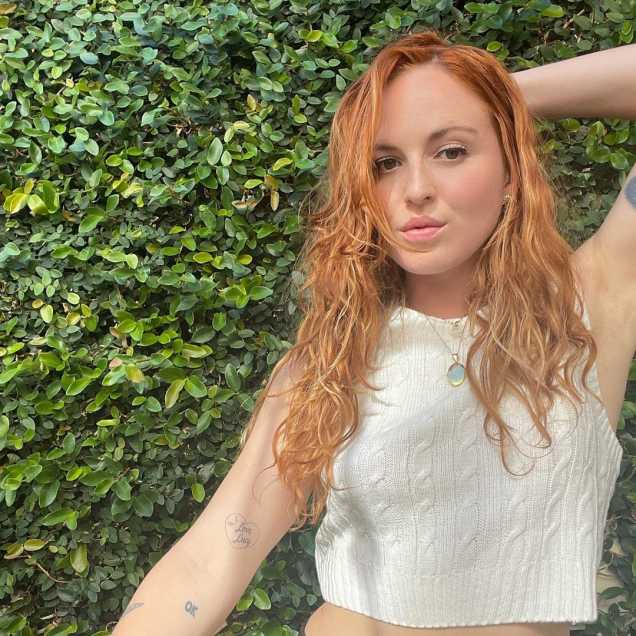WTF Is A Period, Anyway?
Hands up if you thought your period was the same as your cycle?
For people with periods, there’s a knowing look when you discuss how it feels to be on your period. Cramps. Tick. Headaches. Tick. Loose stools and/or diarrhea. Tick. Vagina aches (yes, they’re An Actual Thing). Double tick. It’s kind of great to have this collective mood that encompasses what you go through each month. But how much are we discussing our whole cycles, not just the moments when we’re bleeding? Even though the information is there, it’s sometimes confusing or convoluted. So whether you’re someone who has a period or doesn’t, this brief overview will help clear up what happens each month (or sort-of month) and answer the question, “what is a period?”
At Hummingway, we’re all about Whole Cycle Wellness™️, so even though understanding what your period (aka menstruation – the technical term you’ll see us using, too) is important, it’s just one moment in your cycle. A lot of people will use the term period interchangeably with cycle – when actually your period is the kick-off point for your whole cycle. We talk about cycles in two phases (follicular and luteal) and two moments (menstruation and ovulation).
In case you were wondering what’s a typical length for a cycle: according to FIGO (The International Federation of Gynecology and Obstetrics), it’s healthy to have cycles that last 24-38 days, with 7-9 days of variation cycle to cycle. We’ve written about factors that can impact your cycle here, if you’re curious. But if you’re concerned about the length of your period, have a chat with your health care provider.
From heavy bleeding to menstrual cramps, to the changes in hormone levels of estrogen and progesterone, there’s a lot to learn about when it comes to periods. Sometimes a person can experience heavy periods, meaning heavy vaginal bleeding, and sometimes severe period pain. On the other hand, another can experience a light and easy-going regular period with no period pain or heavy bleeding. Either way, what's important to understand is that a menstrual period can be confusing and different for every person, but understanding each of our symptoms and how to deal with them is important. You can also learn how to track your menstrual cycle to know when your period is coming and how to manage it.
Here’s an overview of what goes on – if you want to know more about each phase or moment, head to our Zoom Ins that will give you more details.
Character List
- 1.
Ovaries (positioned on both sides of the uterus, which release eggs)
- 2.
Fallopian tubes (passageways connecting the ovaries to the uterus)
- 3.
Uterus (aka the womb – where a lining of tissue grows and sheds each cycle
- 4.
Vagina (the canal through which your period flows out of your body)
Setting The Scene
The brain influences this process, as it releases hormones that play an important role in your reproductive system.
Each cycle, this causes the ovaries to prepare and release an egg that travels down the fallopian tube into the uterus.
The release of the egg is called ovulation and happens around two weeks before each period, which is about midway through the cycle for most people (day one of a cycle being the first day of bleeding).
The Action
Sometimes the egg meets a sperm in the fallopian tubes where it is fertilized and travels down to the uterus to potentially attach to the uterine wall, leading to pregnancy.
The egg is only viable for 12-24 hours after ovulation, and if it’s not fertilized by sperm in that time, it will break down.
The Final Act
If pregnancy doesn’t happen, hormonal signals trigger the uterine lining to shed through the cervix and vagina.
This moment in your cycle is menstruation (aka: your period).
So when you’re talking about periods, whether it’s educating someone younger than you or just chatting about different menstrual products over dinner with friends (non-menstruators, too, please), remember that bleeding is just one moment. It’s part of a whole cycle. Not to mention that so many factors play a role in your regular period, from hormonal imbalance to menstrual cramps and vaginal bleeding. Sometimes these factors can affect the length of your menstrual cycle, causing a long period or a short period.
There’s so much more research to be done, but as people with periods, we deserve to have all the information, not just one part.
Your hormones can be complex and unpredictable. That’s why we’re here, on The Regular, to do what’s long overdue - to demystify what’s going on with our reproductive systems, our hormones and our whole cycle.
We’re here to support your day-to-day queries serving useful content that is uncomplicated and unbiased. No topic is too complicated or too specific for us to address/focus on.


